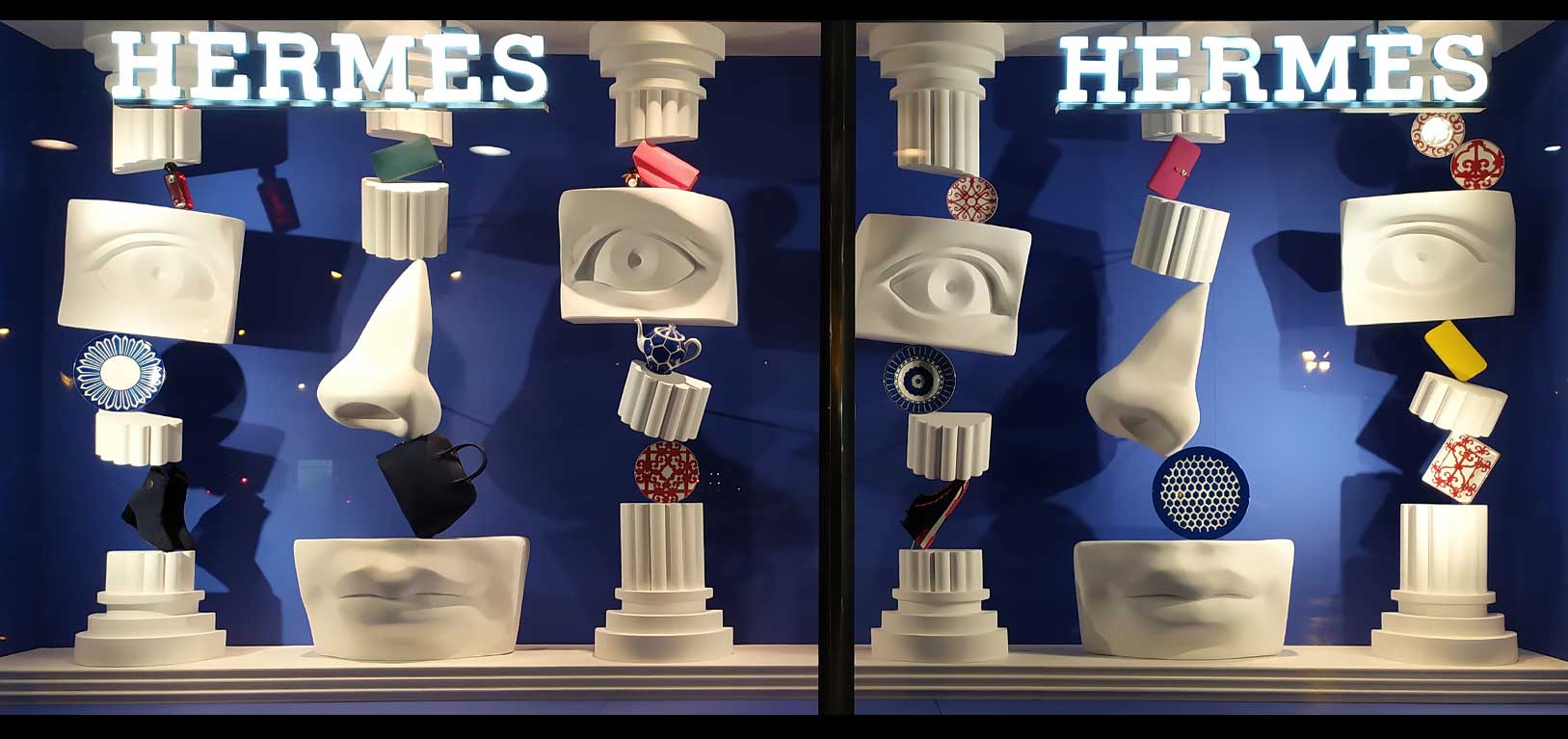
Visual merchandising creates an undeniable visual impact; from the outside, it’s the first thing a customer sees when walking past our establishment. Here, we have the first opportunity to create a visual impact, raising many questions: What elements, shapes, and colours make our customer become captivated by our window display and decide to enter? Well, let’s start by explaining what visual merchandising is all about.
Many elements come into play when designing your visual display. Let’s begin by remembering that visual merchandising must have a harmonious and coordinated visual composition. If you want to know more about visual merchandising, I recommend that you read our post on the subject. When designing a shop window, you should start by choosing which products you want to showcase. These will be the main attractions, so you should choose the most attractive and trendy items. It wouldn’t be correct to design a window display and then decide on the products to showcase, as the reality is that we create a design for the products, and these are the centre of the design, not the other way around.
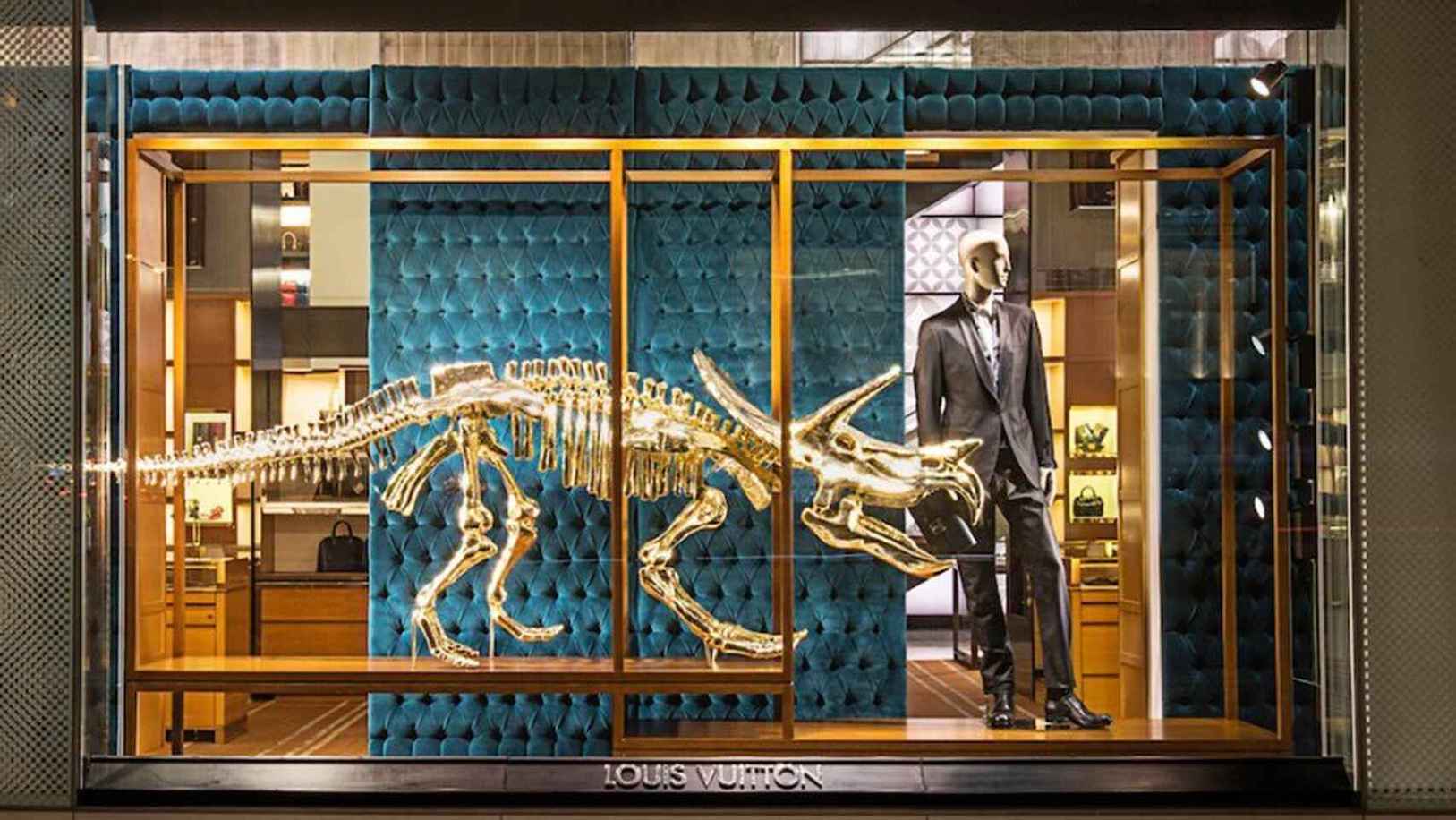
Each brand should be clear about its aesthetic and image, as this is a basic starting point for designing, given that we base our work on a brand’s established values. Being faithful to your brand’s aesthetic is fundamental since it’s important for identification (logo, colours, typography, slogan…).
Imagine if Nike were to change its logo or colour scheme; customers would find it difficult to identify the establishment, and it would create confusion.
Colours identify a brand; if you use this tool well, you can convey the message you want to your customers. Colours create an environment and other important characteristics when connecting with customers. For example, the window displays of Hermès usually have a basic colour palette: neutral colours and different shades of brown. Although they add more colours to the composition, these are almost always present. These colours convey elegance, a basic characteristic of a Hermès customer. In short, you can’t forget to choose colours that resonate with your brand, your message, and your story.
In addition to creating harmony with the brand, you must choose the strategy you will use to make an impact on passers-by. Essentially, there are two options: you can choose to include various colours in the window display or incorporate just one colour. The first option will draw all eyes to you; bright colours with different shapes and textures grab any passer-by’s attention, adding a sense of boldness and daring. Meanwhile, opting for just one colour or a similar colour scheme will make the showcased product stand out even more.
Colour is a strategy, and you must take it into account to impact your customer.
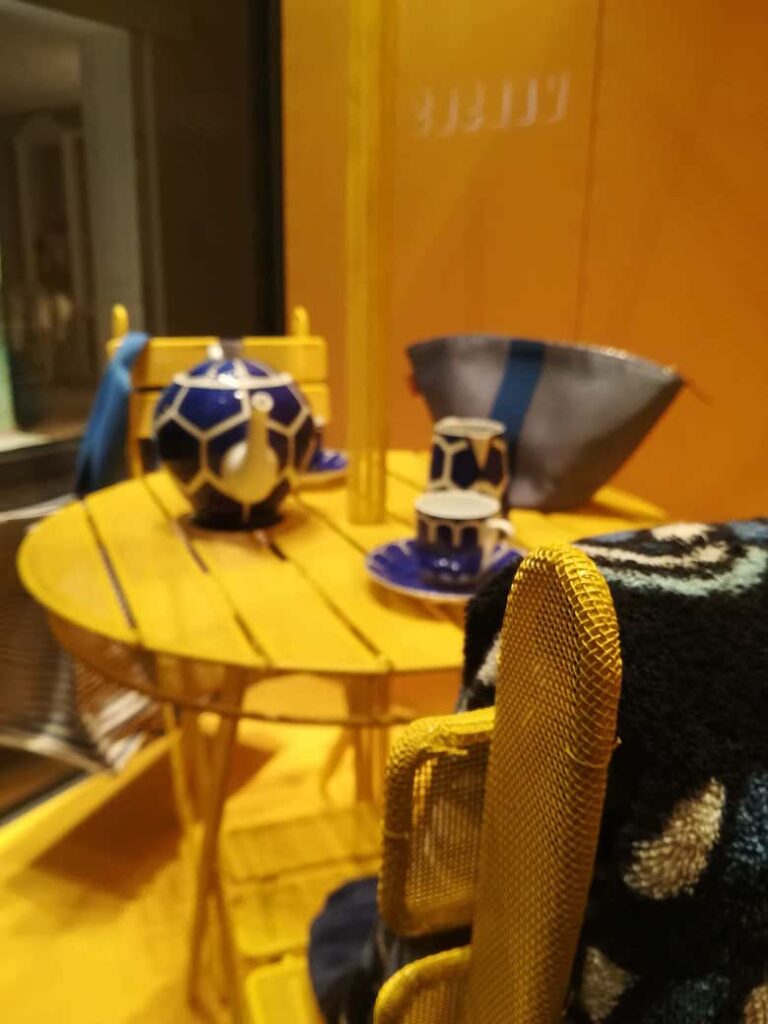
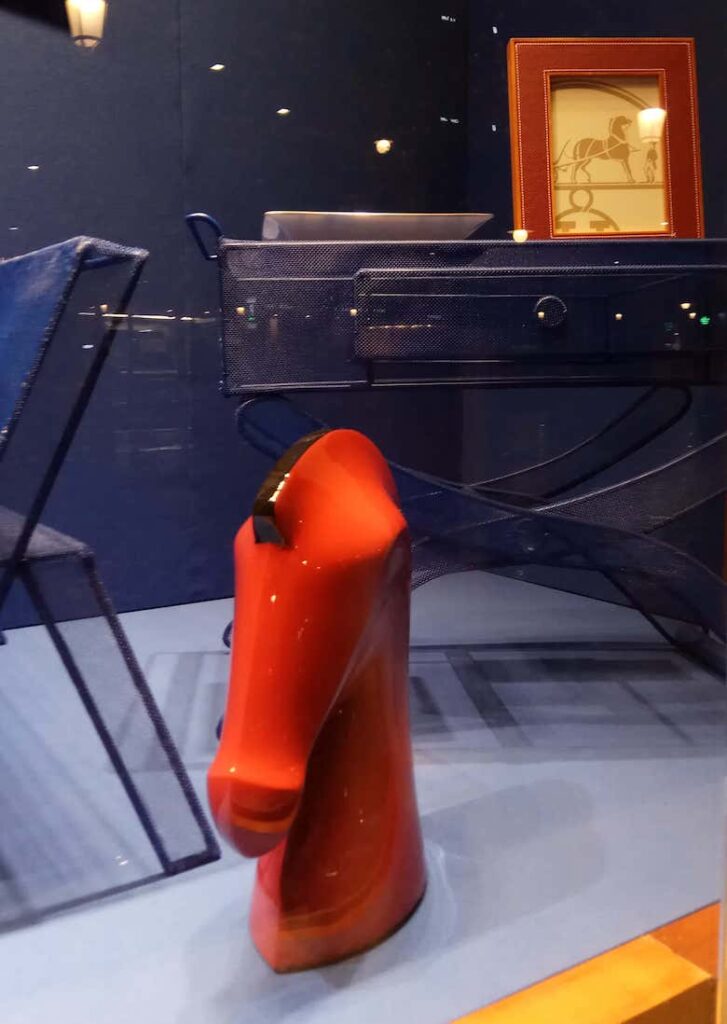
Installation and production of Hermès window shop by Instore.
Light is one of the most important ingredients for generating impactful images. It can create visual effects, making it impossible not to pay attention. Through lighting, you can create new worlds full of colours and textures.
When selecting the elements that make up the window display design, we have endless options in terms of materials, shapes, and positioning.
Usually, when we talk about product brands, they tend to showcase their items in two ways: they can choose to showcase only one product, where all the visual weight falls on it, creating various elements that lead you to look at the product even without intending to. They also often choose to display several products, creating a composition where the focus is not on a single product but on everything, with the window display elements highlighting these products.
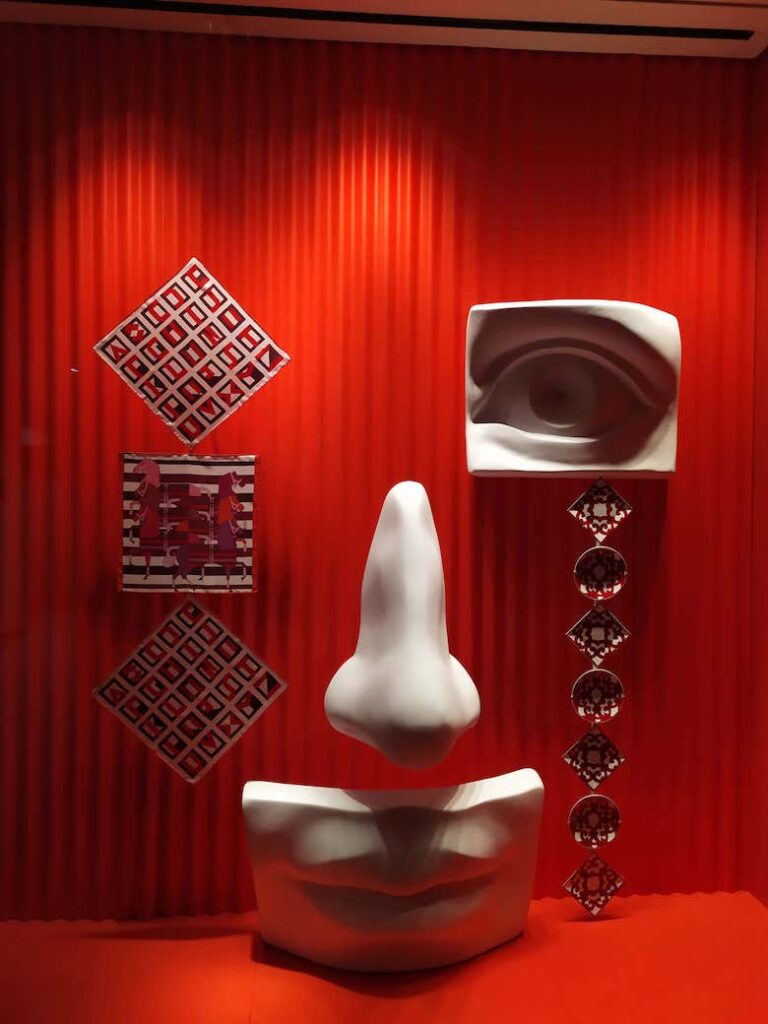
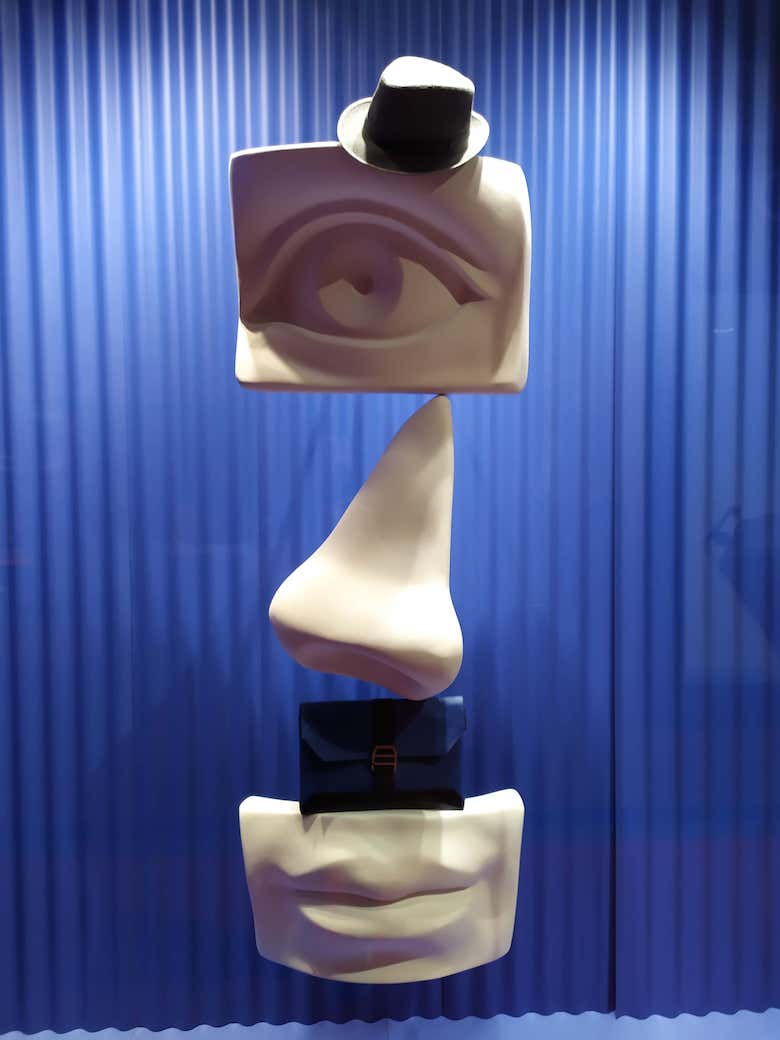
It’s common to create geometric shapes to add volume to the scene. Sometimes, these volumes are repeated and distributed throughout the space, while other times, they are grouped to establish a focal point in the display. This distribution of shapes and volumes helps to build the highly sought-after “sense of depth.”
To create a point of attention originally, it’s common to create movement. These movements can be created in many ways: air machines, lights, mechanisms… The elements can hide and appear on the scene, moving from right to left… This is very creative and original, creating a visual impact on people passing by the shop window.
Another way to create movement is by placing an LED screen in your window display. It can show advertisements, interviews with famous people, campaign images, moving lights, and a moving logo. You can design a window display that creates a high visual impact without even showcasing a product, just with an LED screen. For example, a travel agency can have an LED screen in its display window showing images of incredible places that transport you there and create the need to visit that place on your next holiday.
Digital signage is also a good way to draw attention, and it allows you to send personalised messages that vary according to the day or moment.
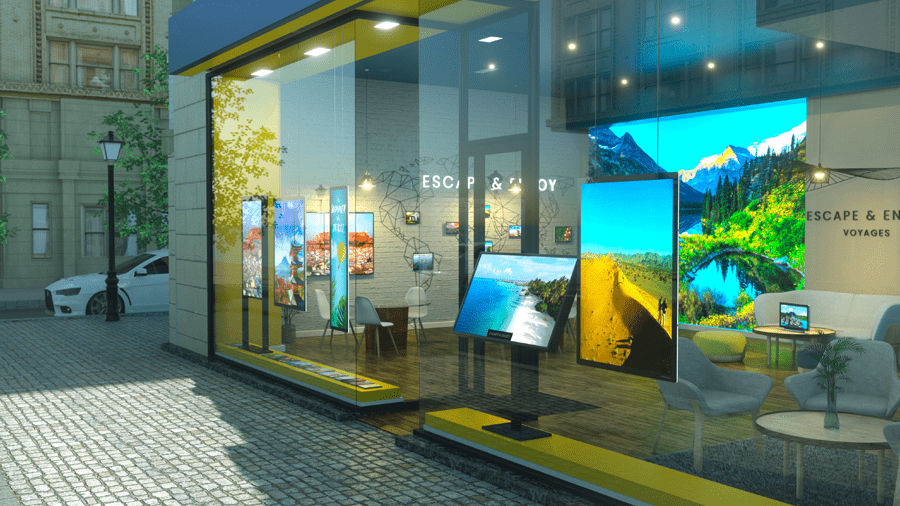
Led screens in the window of the Escape & Enjoy travel agency
For your shop window signage, vinyl will never fail. It’s economical, and you can create high-quality visual signage with it. Vinyl makes it easier to inform people about something; you can indicate new arrivals, your logo, or your slogan. Promotional vinyl is also a good option for special occasions, allowing you to attract customers through promotions and discounts in an original way.
As you can see, depending on your needs, creativity, and aesthetics, you can use these tools to create a window display that visually impacts passers-by. After this, you’ll know that if you neglect the design of your window display, you’ll lose an important opportunity to attract customers and consequently increase your sales.
You may also be interested
open
08:00 AM-18:00 PM Monday – Friday
08:00 AM-18:00 PM Monday – Friday